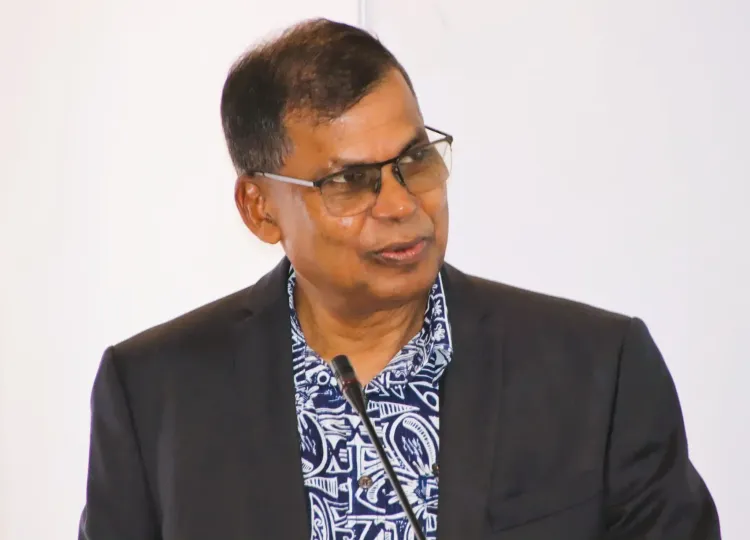Fiji Government Implements Strategies to Decrease Reliance on Foreign Workers

Synopsis
Key Takeaways
- Government implements strategic measures to reduce foreign labor dependency.
- Focus on education, training, and workforce development.
- Forgiveness of 650 million Fijian dollars in student loans.
- Increased scholarships in technical fields.
- Mandated service for scholarship recipients to benefit Fiji.
Suva, Jan 18 (NationPress) The government of Fiji has launched a range of strategic initiatives aimed at enhancing local capabilities and minimizing the need for foreign labor, stated the Deputy Prime Minister and Minister of Finance Biman Prasad.
His comments came as a response to concerns regarding the significant outflow of remittances sent by foreign workers in Fiji to their families overseas, as reported by the Fiji Broadcasting Corporation on Friday.
Prasad noted that while the outflow of funds from foreign workers is a common global phenomenon, Fiji faces distinct challenges due to a considerable disparity between the money exiting the country and the remittances received. To tackle this economic issue, he emphasized that the government is rolling out strategic measures to foster resilience and lessen reliance on foreign labor.
A pivotal element of this strategy is a renewed emphasis on education, training, and workforce development.
One significant initiative includes the reform of the Tertiary Education Loans Scheme, which led to the government forgiving 650 million Fijian dollars (approximately $279 million) in student loans, alleviating financial burdens for 53,000 families.
Alongside the debt relief program, the government has boosted its investment in scholarships, particularly in technical disciplines, as highlighted in the report.
Recipients of these scholarships are mandated to serve the country post-graduation, a strategy aimed at ensuring that public investments in education yield concrete advantages for Fiji.
Prasad asserted that the government's initiatives to align educational and training programs with the demands of the labor market are essential.
This strategy is designed to cultivate a skilled workforce capable of filling critical gaps in sectors crucial to Fiji's development, as reported by Xinhua news agency.









